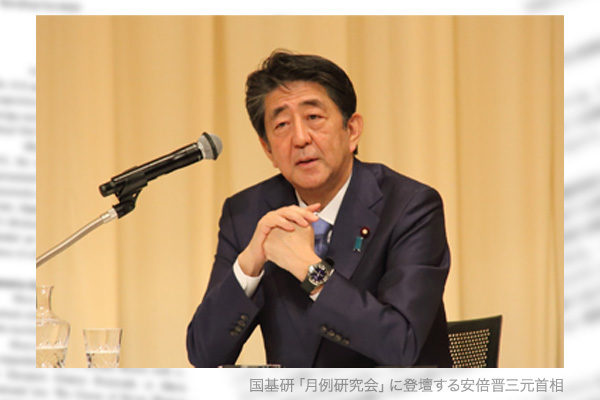It is natural for any sovereign country to independently enhance national defense capabilities. But Japan has failed to do so since the end of World War II. “No country fights for any other country that fails to make efforts to defend itself,” said former Prime Minister Shinzo Abe. It is a valid claim. The Japan-U.S. alliance is important, but we should not be complacent with it.
“It was natural for the [ruling] Liberal Democratic Party to commit to increase defense expenditure ‘with a level of 2% or more of gross domestic product in mind’ in its campaign promise for the House of Representatives election last autumn,” Abe said in an interview with the Sankei Shimbun newspaper as reported on March 26. “No country fights for any other country that fails to make efforts to defend itself.” To Ukraine under Russian aggression, many countries have provided weapons and other assistance because Ukrainian people have taken up arms and fought against the aggressors. If Ukrainians simply surrender, none will support them.
Kishida failing to mention 2% of GDP
“We would take Russia’s outrageous action as that against our own country and first review and enhance Japan’s defense posture,” Prime Minister Fumio Kishida told an LDP convention on March 13.
But Kishida failed to mention 2% of GDP as discussed by Abe, in contrast to German Chancellor Olaf Scholz who pledged to raise defense expenditure to more than 2% of GDP immediately after Russia’s aggression against Ukraine. Kishida may be concerned that his discussion of such specific figure would come under fire from opposition parties and affect the LDP’s performance in a House of Councilors election in July.
The Kishida administration plans to revise a national security strategy late this year to demonstrate Japan’s basic foreign and defense policies. Kishida should provide a blueprint for the enhancement of defense capabilities by summer and emphasize the enhancement in campaigns for the Upper House election.
The situation surrounding Japan is very tense. In a manner to warn against Japan that has imposed economic sanctions on Russia, Moscow held military exercises on Japan’s inherent Northern Territories. North Korea has conducted a series of ballistic missile testings since the beginning of the year, making the Sea of Japan an effective North Korean testing site. Chinese government ships have frequently intruded into Japan’s territorial waters around the Senkaku Islands in the East China Sea.
In recent Japan-U.S. summit talks, the U.S. side routinely reaffirms the application of the Japan-U.S. Security Treaty’s joint defense clause of Article 5 to the Senkaku Islands. As the current situation is pressing so much, it is significant to bring the United States into Japan’s side to counter China. But we should not be complacent with the U.S.’ reaffirmation of the article alone.
Wake up from a postwar sleep
Unless Japan makes utmost efforts to defend itself, U.S. forces would not come to defend Japan, as Abe puts it. At the LDP convention, Kishida boasted the Japan-U.S. alliance as “one of the world’s best alliances.” But we must remember that Japan’s defense efforts are the premise for the alliance.
Japanese people woke up from a long peaceful sleep in the Edo Period when U.S. Commodore Matthew Perry’s black ship fleet appeared in waters off Uraga, Yokosuka, in 1853. The time has come for Japanese people to wake up again.
Takashi Arimoto is a Planning Committee member at the Japan Institute for National Fundamentals and publisher of Monthly Magazine SEIRON at the Sankei Shimbun newspaper.


